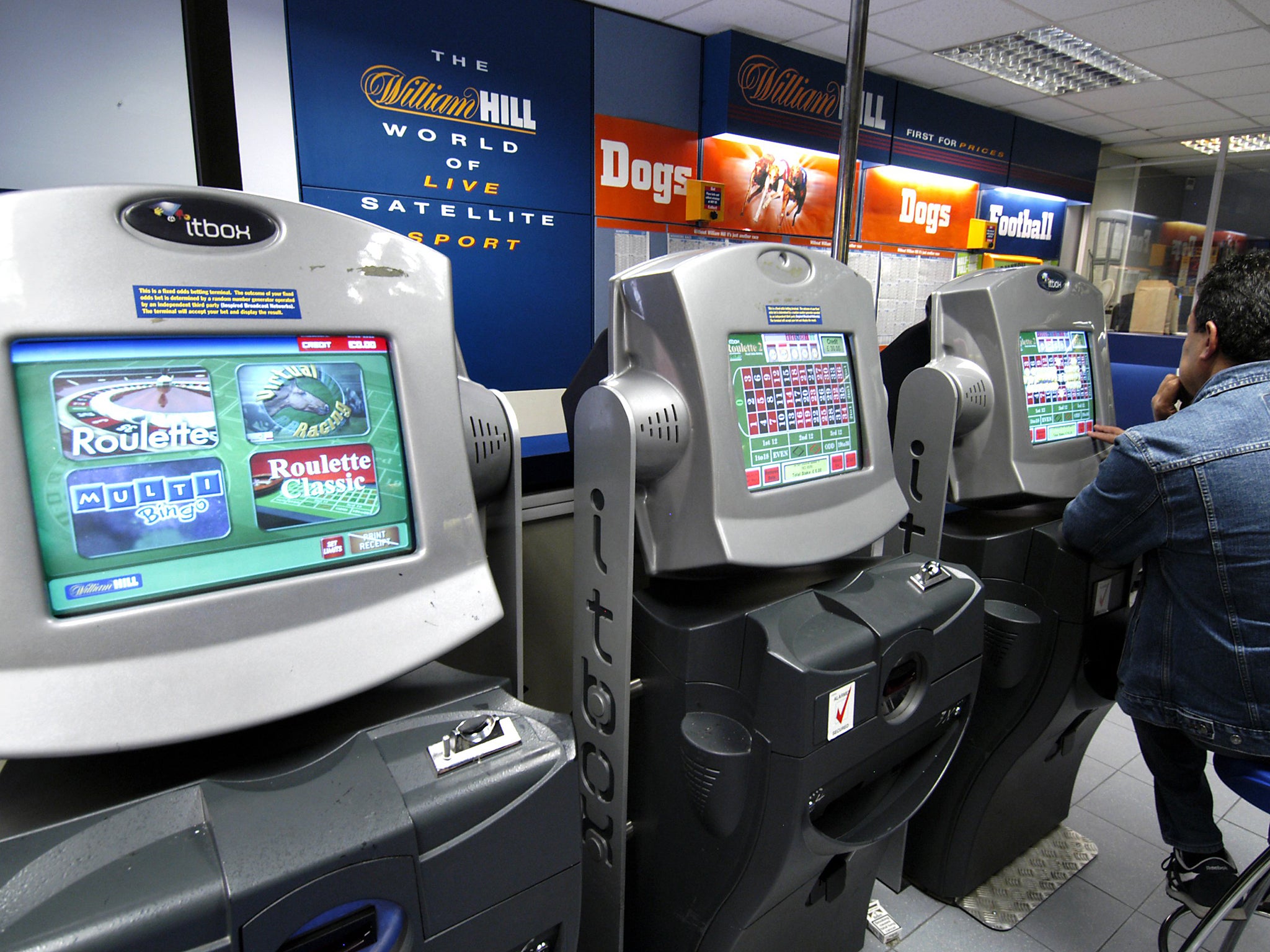The murky battleground over Fixed Odds Betting Terminals is of MPs’ making
The All-Party Parliamentary Group on FOBTs is right to be concerned about the machines, but it has weakened its case by accepting donations from companies that operate rival products

Your support helps us to tell the story
From reproductive rights to climate change to Big Tech, The Independent is on the ground when the story is developing. Whether it's investigating the financials of Elon Musk's pro-Trump PAC or producing our latest documentary, 'The A Word', which shines a light on the American women fighting for reproductive rights, we know how important it is to parse out the facts from the messaging.
At such a critical moment in US history, we need reporters on the ground. Your donation allows us to keep sending journalists to speak to both sides of the story.
The Independent is trusted by Americans across the entire political spectrum. And unlike many other quality news outlets, we choose not to lock Americans out of our reporting and analysis with paywalls. We believe quality journalism should be available to everyone, paid for by those who can afford it.
Your support makes all the difference.I wouldn’t be surprised had the fire brigade been called out to the Association of British Bookmakers’ HQ in the wake of the latest Parliamentary report into Fixed Odds Betting Terminals (FOBTs).
The amount of steam coming out of the building might at the very least have prompted a polite enquiry from the ABB’s local station.
Let me explain: the All-Party Parliamentary Group on FOBTs, those pestilential machines that can make visiting a betting shop a thoroughly depressing experience, has just opined that there is a “prima facie case” for significantly reducing the maximum stake that can be wagered in a scathing report into their operation.
It claims that FOBTs, which contribute to a significant chunk of the big bookies’ profits, are responsible for “sucking money out of the pockets of families” in deprived areas and that there is “nothing responsible about how FOBTs are currently being operated”.
The committee has called for the maximum stake size to be reduced from up to £100 (although if you want to go up to that level you do face restrictions) to just £2 and for the speed of spin (roulette being the most popular FOBT game) to be reduced too.
It further recommends that ministers consider a reduction in the number of machines allowed in each shop
The group says it took evidence from local authorities, industry experts, academics, gambling minister Tracey Crouch, the Gambling Commission and groups representing problem gamblers.
It did not hear from the bookmakers, who declined to participate. A no win situation is something you might expect this industry to be rather good at recognising.
The problem with the report, as the ABB is at pains to point out, comes when you look at the group's funding. The list of donors on Parliament’s website includes JD Wetherspoon, which makes money out of fruit machines in its pubs, Bacta, the leading trade association for those machines, Novomatic, which makes high-tech gaming equipment and operates in electronic and regular casinos, and Hippodrome Casino.
All of these are competitors, to a greater or lesser extent, to betting shops and offer alternative machine-based gambling products, albeit some of which are more tightly regulated than FOBTs with, for example, tighter restrictions on stake size.
The ABB has described the report as “deeply flawed” and called for an inquiry by the Parliamentary Commissioner for Standards. Which is slightly silly. It’s not as if the identities of the report’s funders are hidden, and it is only expressing a view point. One, incidentally, that has been widely aired in the past.
The bookmakers are at liberty to make a case against it, as they have, although the way they have made it says a lot. What do you do if you’re having trouble countering your opponent’s argument? You shout a lot and wave your fists and try and obscure it with smoke and steam. Which is what (metaphorically) the ABB has done here and explains why the fire brigade might want to hightail it down to its offices.
All the same, it was unwise of the MPs on the committee not to see the dangerous ground they were treading on. People of the standing of Stephen Timms, David Lammy and Sir Peter Bottomley really ought to have been aware of the problem with accepting funding from bookies’ competitors.
While it shouldn’t give FOBTs a pass, it is perfectly possible to get into trouble via the products they offer and the MPs have weakened their case through their involvement. They provided the ABB with an easy line of attack and something to point to in addition to the tax revenue the machines generate. Which is what, ultimately, will probably keep the machine’s virtual roulette wheels spinning given its importance to the Exchequer.
Join our commenting forum
Join thought-provoking conversations, follow other Independent readers and see their replies
0Comments